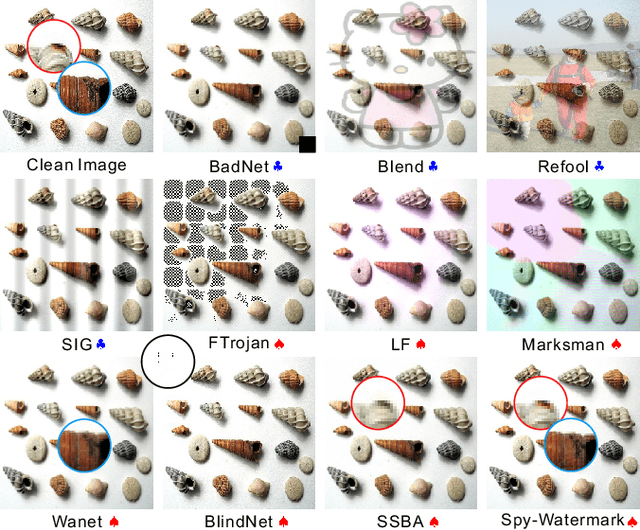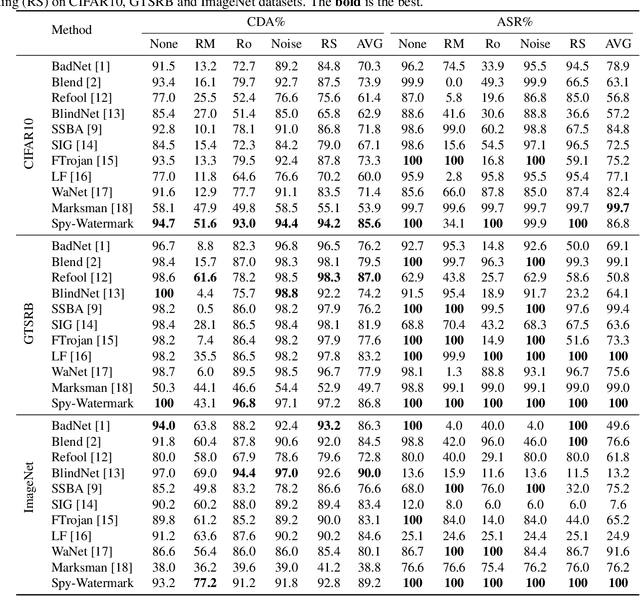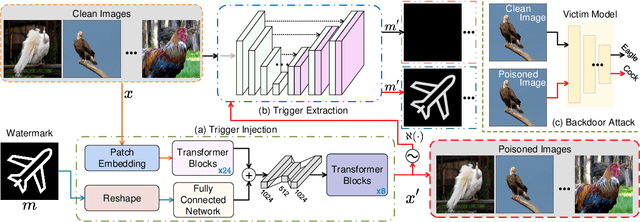Spy-Watermark: Robust Invisible Watermarking for Backdoor Attack
Paper and Code
Jan 04, 2024



Backdoor attack aims to deceive a victim model when facing backdoor instances while maintaining its performance on benign data. Current methods use manual patterns or special perturbations as triggers, while they often overlook the robustness against data corruption, making backdoor attacks easy to defend in practice. To address this issue, we propose a novel backdoor attack method named Spy-Watermark, which remains effective when facing data collapse and backdoor defense. Therein, we introduce a learnable watermark embedded in the latent domain of images, serving as the trigger. Then, we search for a watermark that can withstand collapse during image decoding, cooperating with several anti-collapse operations to further enhance the resilience of our trigger against data corruption. Extensive experiments are conducted on CIFAR10, GTSRB, and ImageNet datasets, demonstrating that Spy-Watermark overtakes ten state-of-the-art methods in terms of robustness and stealthiness.
 Add to Chrome
Add to Chrome Add to Firefox
Add to Firefox Add to Edge
Add to Edge